When you’re in the job market, every interview feels like a test. It’s easy to get caught up in the nerves, the pressure to impress, and the fear of rejection. But there’s one thing that can make all the difference in how you present yourself—and that’s owning your worth. Too often, candidates downplay their skills and achievements during interviews, thinking they need to humble themselves in order to fit in. The reality is that you’re doing yourself a disservice by selling yourself short.
In this blog, we’ll explore why it’s important to own your value in every interview and how to communicate your worth with confidence.
1. Know Your Value Before You Walk In
Before you even step into the interview room, take the time to reflect on your unique skills, experiences, and the value you bring to the table. What sets you apart from other candidates? What accomplishments are you proud of? This could be your academic achievements, specific projects you’ve led, or the results you’ve driven in your previous roles.
It’s also crucial to align your talents with the specific needs of the job you’re applying for. Take a moment to study the job description and think about how your skills and experiences directly relate to the role. Are you particularly skilled at problem-solving, project management, or leading teams? Can your experience in a similar industry or role bring a fresh perspective to the company? Understanding how your talents match the job will give you the confidence to speak directly to the employer’s needs, showing them that you are not only qualified but the perfect fit for the position.
The more you know about your strengths and how they apply to the job, the easier it will be to communicate them during the interview. This self-awareness is the first step in owning your worth. Remember, if you don’t recognize your value, it’s harder for others to see it too.
2. The Confidence Factor: Own Your Achievements
Confidence is key during any interview. When you walk in feeling unsure of your value, it shows. Hiring managers are more likely to pick up on hesitation or uncertainty, which can make them question your abilities. On the other hand, owning your achievements and confidently articulating your successes makes a strong, positive impression.
It’s not about bragging or inflating your accomplishments. It’s about acknowledging the hard work and dedication you’ve put into your career and presenting it in a way that demonstrates how you’re the right fit for the role. You have worked hard to get to where you are—own it.
3. Frame Your Skills in Terms of Value
It’s not enough to just list your skills and qualifications. You need to frame them in a way that highlights the value you can bring to the company. For example, if you have experience managing a team, don’t just say, “I’ve managed a team of five people.” Instead, say, “I led a team of five people, and together we achieved a 20% increase in sales over the course of six months by implementing a new marketing strategy.”
By connecting your skills to tangible outcomes, you demonstrate that you’re not just capable—you’re someone who can drive results. This shows that you understand the broader impact your work has on the company’s success, which is a trait every employer values.
4. Don’t Downplay Your Successes
One of the biggest mistakes candidates make is downplaying their achievements. It’s easy to fall into the trap of thinking you’re not good enough, or that others have done similar things, so why should it matter? But each experience you have brings its own set of lessons, results, and contributions that deserve recognition.
If you’ve received positive feedback or accolades in previous roles, don’t be afraid to share them. If you’ve gone above and beyond in any capacity, that’s worth mentioning. Employers want to know what sets you apart from other candidates, so make sure you’re not minimizing your accomplishments. Own your success—without arrogance, but with pride.
5. Use “We” and “I” Thoughtfully
When talking about your achievements, it’s important to strike a balance between showcasing your individual contributions and acknowledging the collective efforts of your team. While teamwork is essential, it’s also important to highlight the specific role you played in achieving those results.
For example, if you worked on a team project, instead of saying, “We did X,” say, “I contributed to the success of X by leading the research and presenting the findings to the team, which ultimately led to Y.” This communicates both your individual contribution and the team’s success.
6. Understand Your Salary Worth
Before you go into an interview, research the market value for the role you’re applying for. Knowing your worth in terms of salary is just as important as knowing your value in terms of skills and experience. If the topic of salary comes up, be ready to confidently discuss your compensation expectations based on your qualifications and the market rate.
Remember that negotiating salary is not a reflection of greed—it’s about ensuring you are being compensated fairly for the work you’ll be doing. By understanding your worth, you can confidently enter negotiations and advocate for yourself.
7. Be Prepared for Common Interview Questions
Certain questions are designed to test your self-awareness and confidence. Questions like “Tell me about yourself” or “What are your strengths and weaknesses?” provide an opportunity to highlight your achievements and demonstrate how they align with the role.
For instance, when asked about your strengths, you could say, “One of my key strengths is problem-solving. For example, in my last role, I identified a gap in the workflow, which led to a 15% increase in efficiency. I used my ability to assess the situation and work with the team to implement a solution that improved the overall process.”
8. Know When to Stop Talking
It’s important to be able to own your worth, but equally important is knowing when to stop. After highlighting your accomplishments and value, pause and allow the interviewer to process the information. Giving them space to ask follow-up questions or respond helps create a natural flow in the conversation.
Don’t feel the need to fill every silence with more explanations or justifications. Trust in what you’ve shared and know that you’ve already conveyed your worth effectively.
9. Don’t Be Afraid to Ask Questions
An interview is a two-way street. While it’s important for you to showcase your value, it’s just as crucial for you to understand if the role and the company are the right fit for you. Don’t be afraid to ask insightful questions about the role, the expectations, and the company culture. Questions like, “What does success look like in this position?” or “What are the biggest challenges the team is currently facing?” show that you’re thinking critically about how you can contribute to the organization’s goals.
You can even ask about the interviewer’s experience at the company to get a better sense of the work environment. Asking about their journey can help you understand more about the company’s values, culture, and growth opportunities. This exchange demonstrates that you are invested in the opportunity and ensures that you make an informed decision about your next career move.
Final Thoughts
The key to succeeding in interviews isn’t just about answering questions—it’s about presenting yourself as the confident, capable individual that you are. By owning your worth and communicating your achievements clearly, you show employers that you are someone who brings value to the table. Don’t sell yourself short—embrace your strengths, acknowledge your accomplishments, and approach every interview with the confidence that you are the right fit for the role. When you own your worth, employers will take notice, and you’ll be one step closer to landing the job you deserve.



































